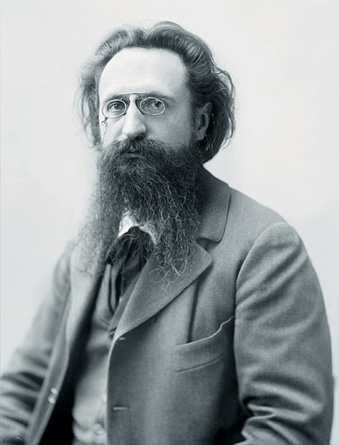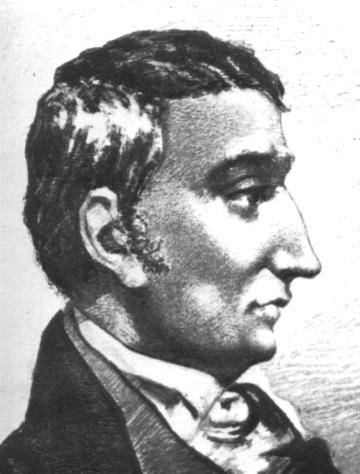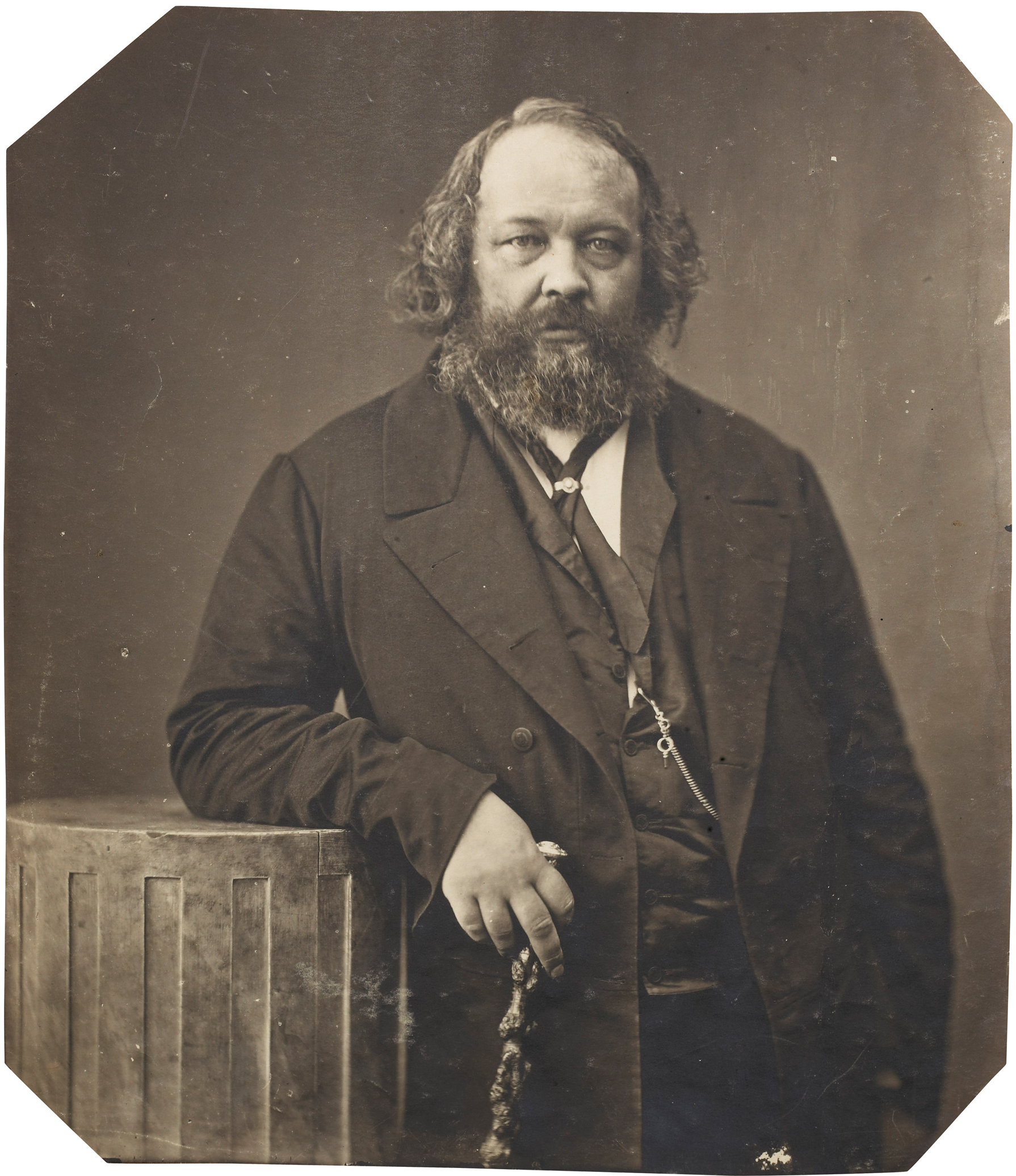|
Socialist Workers' Congress (1879)
The Third Socialist Workers' Congress of France was held in Marseille, France, in 1879. At this congress the socialist leaders rejected both cooperation and anarchism, both of which would allow the existing regime to continue, and adopted a program based on collectivism. The congress also adopted a motion that women should have equal rights to men, but several delegates felt that essentially woman's place was in the home. The congress has been called a triumph of Guesdism and the birthplace of French Marxist socialism, but both claims are open to question. The attendees soon split into rival groups with disparate beliefs. Location The Third Socialist Workers' Congress was held in Marseille on 20–31 October 1879. It was held in the Salle des Folies-Bergères. The Marseilles Congress followed the Congress of Lyon of 1878, and was the most important socialist congress in France before 1889 in terms of attendance, resolutions and its effect on the socialist party's constitution. T ... [...More Info...] [...Related Items...] OR: [Wikipedia] [Google] [Baidu] |
Marseille
Marseille ( , , ; also spelled in English as Marseilles; oc, Marselha ) is the prefecture of the French department of Bouches-du-Rhône and capital of the Provence-Alpes-Côte d'Azur region. Situated in the camargue region of southern France, it is located on the coast of the Gulf of Lion, part of the Mediterranean Sea, near the mouth of the Rhône river. Its inhabitants are called ''Marseillais''. Marseille is the second most populous city in France, with 870,731 inhabitants in 2019 (Jan. census) over a municipal territory of . Together with its suburbs and exurbs, the Marseille metropolitan area, which extends over , had a population of 1,873,270 at the Jan. 2019 census, the third most populated in France after those of Paris and Lyon. The cities of Marseille, Aix-en-Provence, and 90 suburban municipalities have formed since 2016 the Aix-Marseille-Provence Metropolis, an Indirect election, indirectly elected Métropole, metropolitan authority now in charge of wider metropo ... [...More Info...] [...Related Items...] OR: [Wikipedia] [Google] [Baidu] |
Jean Grave
Jean Grave (; October 16, 1854, Le Breuil-sur-Couze – December 8, 1939, Vienne-en-Val) was an important activist in the French anarchist and the international anarchist communism movements. He was the editor of three major anarchist periodicals, ''Le Révolté'', '' La Révolte'' and ', and wrote dozens of pamphlets and a number of important anarchist books. Grave supported anarchism in the late 1870s, when it first began to emerge as a distinct movement. He was initially a supporter of Jules Guesde's Marxist-inspired philosophy. He attended political meetings in Paris before moving in 1883 to Geneva where he was invited by Peter Kropotkin and Elisée Reclus to be the editor of ''Le Révolté'', which was renamed ''La Révolte'' when it moved to Paris in 1886. He edited ''La Révolte'' from 1887 to 1894. In 1893 Grave wrote '' La société mourante et l'anarchie'', prefaced by Octave Mirbeau, for which he was sentenced to two years in prison. Mirbeau, like Élisée Reclus, ... [...More Info...] [...Related Items...] OR: [Wikipedia] [Google] [Baidu] |
1879 In Politics
Events January–March * January 1 – The Specie Resumption Act takes effect. The United States Note is valued the same as gold, for the first time since the American Civil War. * January 11 – The Anglo-Zulu War begins. * January 22 – Anglo-Zulu War – Battle of Isandlwana: A force of 1,200 British soldiers is wiped out by over 20,000 Zulu warriors. * January 23 – Anglo-Zulu War – Battle of Rorke's Drift: Following the previous day's defeat, a smaller British force of 140 successfully repels an attack by 4,000 Zulus. * February 3 – Mosley Street in Newcastle upon Tyne (England) becomes the world's first public highway to be lit by the electric incandescent light bulb invented by Joseph Swan. * February 8 – At a meeting of the Royal Canadian Institute, engineer and inventor Sandford Fleming first proposes the global adoption of standard time. * March 3 – United States Geological Survey is founded. * March 11 – The Ry ... [...More Info...] [...Related Items...] OR: [Wikipedia] [Google] [Baidu] |
Political Congresses
Politics (from , ) is the set of activities that are associated with making decisions in groups, or other forms of power relations among individuals, such as the distribution of resources or status. The branch of social science that studies politics and government is referred to as political science. It may be used positively in the context of a "political solution" which is compromising and nonviolent, or descriptively as "the art or science of government", but also often carries a negative connotation.. The concept has been defined in various ways, and different approaches have fundamentally differing views on whether it should be used extensively or limitedly, empirically or normatively, and on whether conflict or co-operation is more essential to it. A variety of methods are deployed in politics, which include promoting one's own political views among people, negotiation with other political subjects, making laws, and exercising internal and external force, including wa ... [...More Info...] [...Related Items...] OR: [Wikipedia] [Google] [Baidu] |
History Of Socialism
The history of socialism has its origins in the 1789 French Revolution and the changes which it brought, although it has precedents in earlier movements and ideas. ''The Communist Manifesto'' was written by Karl Marx and Friedrich Engels in 1847-48 just before the Revolutions of 1848 swept Europe, expressing what they termed scientific socialism. In the last third of the 19th century parties dedicated to Democratic socialism arose in Europe, drawing mainly from Marxism. The Australian Labor Party was the world's first elected socialist party when it formed government in the Colony of Queensland for a week in 1899. In the first half of the 20th century, the Soviet Union and the Communist party, communist parties of the Third International around the world mainly came to represent socialism in terms of the Economy of the Soviet Union, Soviet model of economic development and the creation of Planned economy, centrally planned economies directed by a state that owns all the means of pr ... [...More Info...] [...Related Items...] OR: [Wikipedia] [Google] [Baidu] |
Hubertine Auclert
Hubertine Auclert (; 10 April 1848 – 4 August 1914) was a leading French feminist and a campaigner for women's suffrage. Early life Born in the Allier ''département'' in the Auvergne area of France into a middle-class family, Hubertine Auclert's father died when she was 13 and her mother sent her to live and study in a Roman Catholic convent. As a young girl she planned to become a nun but left the convent at 16. Estranged from her mother, she lived with her uncle for a time but had to return to the convent a few years later. She left the convent for good in 1869 and moved to Paris. There, the ousting of Emperor Napoleon III and the establishment of the Third Republic opened the door to activism on the part of women, who began demanding changes to the Napoleonic Code to provide education and economic independence for women and the legalisation of divorce. Political activism and feminism Auclert, inspired by the high-profile activities of Maria Deraismes and Léon Richer, b ... [...More Info...] [...Related Items...] OR: [Wikipedia] [Google] [Baidu] |
Isidore Finance
Isidore Finance (7 February 1848, Sainte-Croix-aux-Mines – 16 October 1918), Paris was a French house painter and decorator and syndicalist. He was involved with the Cercle des prolétaires positivistes and contributed to ''Le Positivisme au Congrès Ouvrier'' with Fabien Magnin and Emile Laporte At the Socialist Workers' Congress (1879) The Third Socialist Workers' Congress of France was held in Marseille, France, in 1879. At this congress the socialist leaders rejected both cooperation and anarchism, both of which would allow the existing regime to continue, and adopted a progr ... in Marseille Finance, he represented the building painters of Paris and urged "tough-fisted and hardheaded workingmen ... to demand a wage that is not simply the equivalent to the product of their labours, but sufficient to keep women and the aged at home." Works Discours sur los sooiétés coopératives1877 References Sources * * {{DEFAULTSORT:Finance, Isidore 1848 births 1918 deaths ... [...More Info...] [...Related Items...] OR: [Wikipedia] [Google] [Baidu] |
Central Revolutionary Committee
The Central Revolutionary Committee (french: Comité révolutionnaire central, CRC) was a French Blanquist political party founded in 1881 and dissolved in 1898. The CRC was founded by Édouard Vaillant to continue the political struggle of Auguste Blanqui (1805–1881). It was weakened by a split in 1888, when numerous members including Henri Rochefort followed General Georges Ernest Boulanger who synthesized Jacobin nationalism with socialism and many saw Boulangism as a possible way to socialism. Following the Boulangist dissidence, Vaillant re-centered the party around the idea of syndicalism and strike. The CRC was further reinforced in 1896 by the affiliation of the Revolutionary Communist Alliance (ACR), formed by dissidents of the Revolutionary Socialist Workers' Party (POSR). The CRC was dissolved into the Socialist Revolutionary Party in 1898. Notable members * Édouard Vaillant See also *History of the Left in France The Left in France (french: gauche franç ... [...More Info...] [...Related Items...] OR: [Wikipedia] [Google] [Baidu] |
Rudolf Rocker
Johann Rudolf Rocker (March 25, 1873 – September 19, 1958) was a German anarchist writer and activist. He was born in Mainz to a Roman Catholic artisan family. His father died when he was a child, and his mother when he was in his teens, so he spent some time in an orphanage. As a youth he worked as a cabin boy on river boats and was then apprenticed as a typographer. He became involved in trade unionism and joined the Social Democratic Party of Germany (SPD) before coming under the influence of anarchists such as Mikhail Bakunin and Peter Kropotkin. With other libertarian youth, he was expelled from the SPD, and his anarchist activism led to him fleeing Germany for Paris, where he came into contact with syndicalist and Jewish anarchist ideas and practices. In 1895, he moved to London. Apart from brief spells in Liverpool and elsewhere, he remained in East London for most of the next two decades, acting a key figure in the Yiddish-language anarchist scene there, including editin ... [...More Info...] [...Related Items...] OR: [Wikipedia] [Google] [Baidu] |
Julian Wright (academic)
Julian Wright is Professor of History at Northumbria University. He was Head of Humanities from 2017 to 2022 and has been editor of French History and Secretary for Professional Engagement at the Royal Historical Society. He was previously a senior lecturer in history at the University of Durham and earlier a Junior Research Fellow of Christ Church, Oxford. He is a historian of modern culture, politics and ideas, and has worked in particular on ideas and experiences of time in modern Europe; on the social history of intellectuals and politicians in France; and on historiography. Between 2007 and 2022 he was Musical Director of The Durham Singers. He is the elder son of the theologian and former Bishop of Durham N. T. Wright Nicholas Thomas Wright (born 1 December 1948), known as N. T. Wright or Tom Wright, is an English New Testament scholar, Pauline theologian and Anglican bishop. He was the bishop of Durham from 2003 to 2010. He then became research profe ... Bi ... [...More Info...] [...Related Items...] OR: [Wikipedia] [Google] [Baidu] |
Federation Of The Socialist Workers Of France
The Federation of the Socialist Workers of France (french: Fédération des travailleurs socialistes de France, FTSF) was France's first socialist party, being founded in 1879. The party was characterised as possibilist because it promoted gradual reforms. Formation After the failure of the Paris commune (1871), French socialism was beheaded as its leaders were dead or exiled. During the Marseille Congress (1879), workers' associations created the Federation of the Socialist Workers' Party of France (''Fédération du parti des travailleurs socialistes de France''), but in 1882 Jules Guesde and Paul Lafargue (the son-in-law of Karl Marx) left the federation which they considered too moderate and founded the French Workers' Party (''Parti ouvrier français'', POF). The Federation, initially renamed the Revolutionary Socialist Labour Party (''Parti ouvrier socialiste révolutionnaire''), and then commonly the Federation of the Socialist Workers of France (''Fédération des trava ... [...More Info...] [...Related Items...] OR: [Wikipedia] [Google] [Baidu] |





